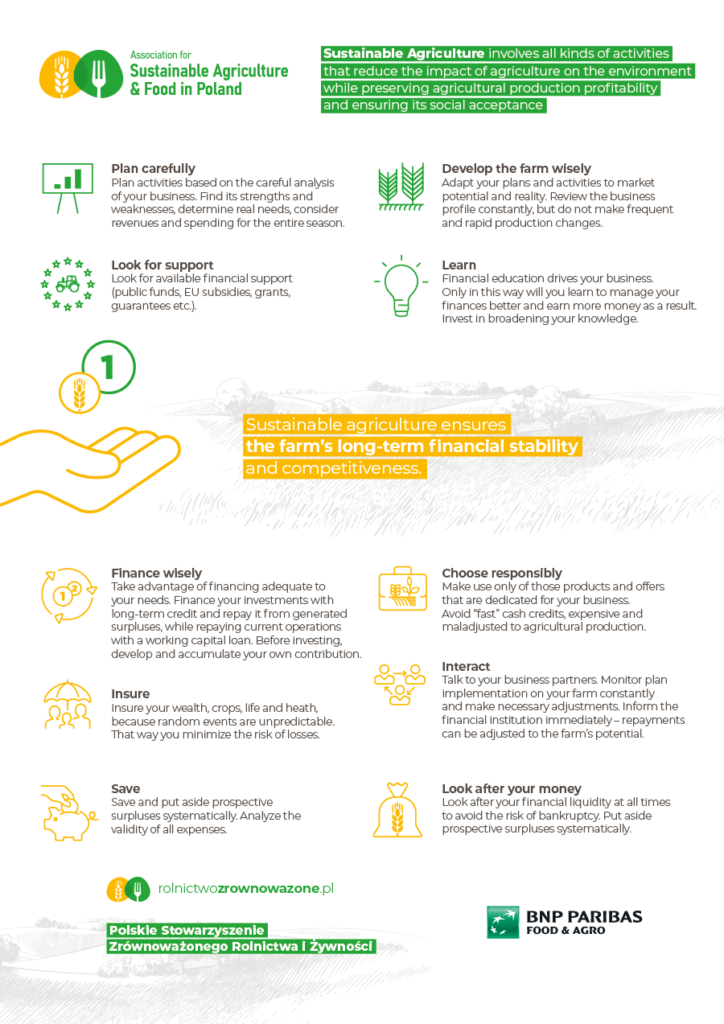Together with Bank BNP Paribas, we have developed a list of 10 principles that describe the most important assumptions of the economic balance of a farm applying the principles of sustainable agriculture.
The list includes both economic aspects, such as planning, financing and support from public funds, as well as important elements related to the soft areas of financial stability management – prudent use of financial offers, competence development or communication and cooperation with financial market institutions.

One of the key benefits for farmers of implementing sustainable agricultural practices is ensuring the long-term financial stability of the farm and increasing its competitiveness in the market. This is extremely important due to the objectives of the European Green Deal and the resulting changes in the business environment.
– points out Małgorzata Bojańczyk, director of the Association for Sustainable Agriculture and Food in Poland.
Sustainable agriculture is all activities limiting the impact of agriculture on the environment, enabling more effective and environmentally friendly use of resources, e.g. soil, earth, water, machinery, plant protection products, seeds, fertilizers or energy, while maintaining the profitability of agricultural production and its social acceptance .
“Finance wisely” and “insure” are two of the pillars of sustainable agriculture. Currently, with the dynamically changing market environment, the expectations of consumers and business partners, and the climate, both of these issues are becoming more important than before. Many years of experience of Bank BNP Paribas in financing agriculture obliges us to indicate the best solutions for financing structures, sometimes deviating from the original assumptions of our clients. In addition, we encourage you to insure especially crops that are most exposed to weather changes.
– says Maciej Piskorski, Director of the Agro Products Department at BNP Paribas.
